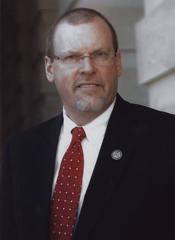Physician Led and Rural Access to Quality Care Act
4/3/2025, 1:59 PMCongress
119
Number
HR - 2191
Introduced on
2025-03-18
# Amendments
0
Sponsors

Cosponsors
+5
Related
Status of Legislation
Bill Introduced
Introduced to House
House to Vote
Introduced to Senate
Senate to Vote
Purpose and Summary
Referred to the Committee on Energy and Commerce, and in addition to the Committee on Ways and Means, for a period to be subsequently determined by the Speaker, in each case for consideration of such provisions as fall within the jurisdiction of the committee concerned.
Bill 119 HR 2191, also known as the Physician Self-Referral Reform Act, aims to make changes to the Social Security Act in order to address concerns related to physician-owned hospitals. The bill specifically focuses on revising certain exemptions that allow physicians to refer patients to hospitals in which they have a financial interest.
Under current law, physician-owned hospitals are able to receive Medicare payments for services provided to patients referred by their physician owners. This has raised concerns about potential conflicts of interest and the potential for overutilization of services.
The proposed changes in Bill 119 HR 2191 seek to tighten regulations around physician self-referrals to ensure that patients are receiving appropriate care based on medical necessity rather than financial incentives. The bill aims to increase transparency and accountability in the healthcare system by requiring physician-owned hospitals to disclose their ownership interests and financial relationships. Additionally, the bill includes provisions to strengthen oversight and enforcement mechanisms to prevent abuse and ensure compliance with the new regulations. This includes penalties for violations and increased reporting requirements for physician-owned hospitals. Overall, Bill 119 HR 2191 represents a bipartisan effort to address concerns related to physician self-referral practices and promote integrity in the healthcare system. The bill aims to protect patients and ensure that healthcare decisions are made based on the best interests of the patient rather than financial gain.
Under current law, physician-owned hospitals are able to receive Medicare payments for services provided to patients referred by their physician owners. This has raised concerns about potential conflicts of interest and the potential for overutilization of services.
The proposed changes in Bill 119 HR 2191 seek to tighten regulations around physician self-referrals to ensure that patients are receiving appropriate care based on medical necessity rather than financial incentives. The bill aims to increase transparency and accountability in the healthcare system by requiring physician-owned hospitals to disclose their ownership interests and financial relationships. Additionally, the bill includes provisions to strengthen oversight and enforcement mechanisms to prevent abuse and ensure compliance with the new regulations. This includes penalties for violations and increased reporting requirements for physician-owned hospitals. Overall, Bill 119 HR 2191 represents a bipartisan effort to address concerns related to physician self-referral practices and promote integrity in the healthcare system. The bill aims to protect patients and ensure that healthcare decisions are made based on the best interests of the patient rather than financial gain.
Alternative Names
Official Title as IntroducedTo amend title XVIII of the Social Security Act to revise certain physician self-referral exemptions relating to physician-owned hospitals.
Display TitleTo amend title XVIII of the Social Security Act to revise certain physician self-referral exemptions relating to physician-owned hospitals.
Official Title as IntroducedTo amend title XVIII of the Social Security Act to revise certain physician self-referral exemptions relating to physician-owned hospitals.
Policy Areas
Health
Comments
Most relevant
Recent Activity
Latest Action3/18/2025
Referred to the Committee on Energy and Commerce, and in addition to the Committee on Ways and Means, for a period to be subsequently determined by the Speaker, in each case for consideration of such provisions as fall within the jurisdiction of the ...
committee concerned.